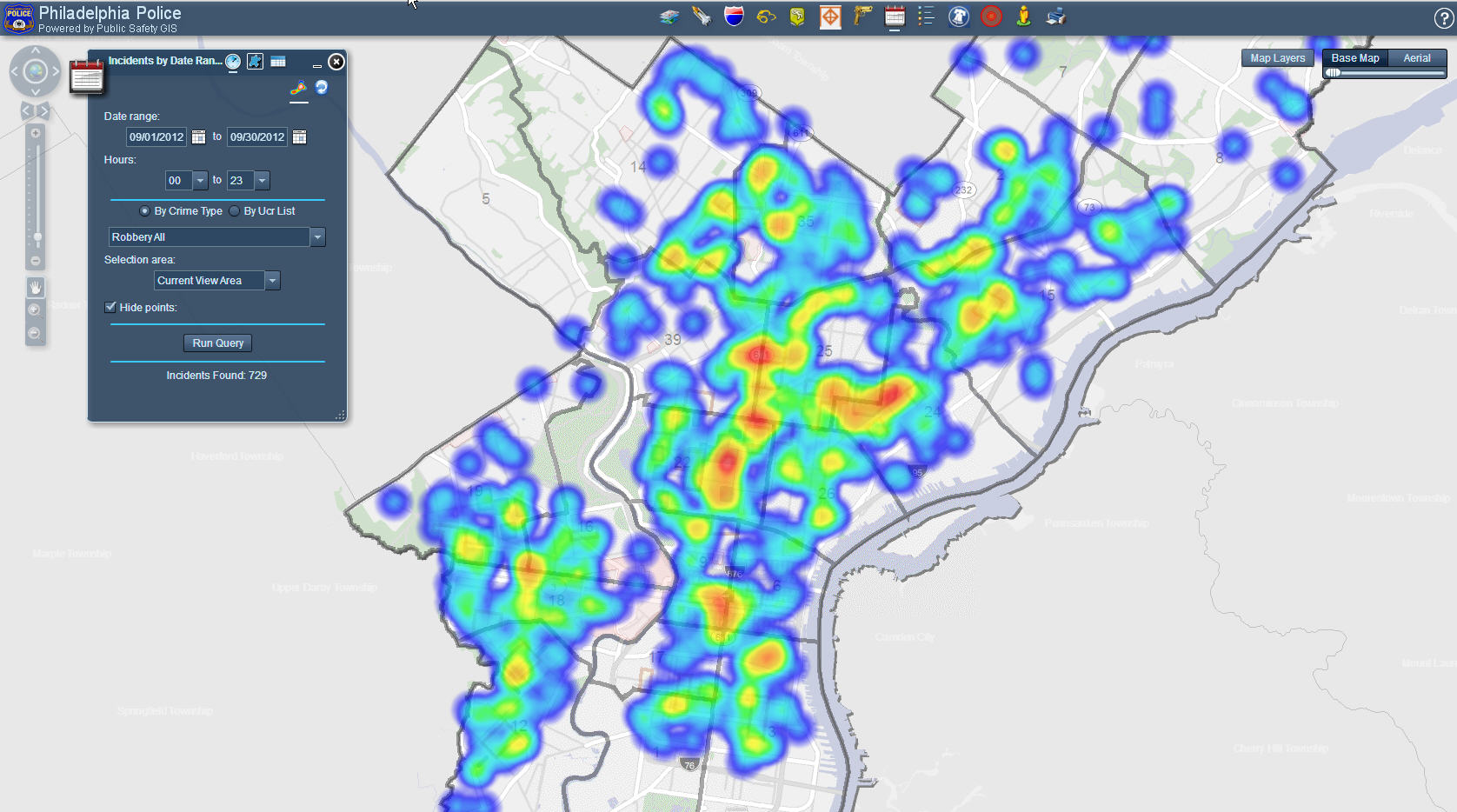
Philadelphians, the city’s crime data is now all yours.
Starting today, the city’s crime data, as well as two APIs, will be available for download on OpenDataPhilly.org, the city announced today. [Updated, see below]
- The raw data will focus on major crimes — homicides, robberies, aggravated assaults and the like — and go as far back as 2006.
- There will be two APIs: one with data dating back to 2006, and one with data on crimes that occurred in the past 30 days.
Both the historical data and the two APIs will be updated daily, said Chief Data Officer Mark Headd.
“This is a major milestone for us,” Headd said, adding that in looking at open data efforts in cities like Baltimore and Chicago, crime data is among the most requested and most accessed.
Check out the data here.
The API that provides data going back one month is limited because too much data would crowd, for example, a crime map that used the API, and make it less meaningful, Headd said. But the city still wanted to provide data that spanned back to 2006 so people could use it for more large-scale analyses.
That said, in private conversations with IT leads within the city and representatives elsewhere, there is real political concern about the impact of near real-time, automated crime mapping. Wouldn’t that make some neighborhoods look bad and create winners and losers, one council member once asked Technically Philly privately? Interesting snapshots and heatmapping will surely be made with the data and soon and Headd’s point of crowding is a real one, but limiting the API may have other motivations.
Still, there’s no question this is movement forward in the transparency game.
There have been several citizen attempts to scrape crime data — see our coverage of SpotCrime and CrimeReports.com — but the city has never made its crime data this accessible before.
Why?
Headd said it’s mostly because there wasn’t a “clearly defined process” for city departments who wanted to release their data. But Headd and his Open Data Working Group is working to change that, and the Police Department was one of the first city agencies to validate this new workflow.
Read more about how the Police Department is using its own data to track crime here.
Updated 2:29 p.m. 12/12/12 to reflect that the city is releasing two APIs: one short-term, month-old crime data API and another one that dates back to 2006.







